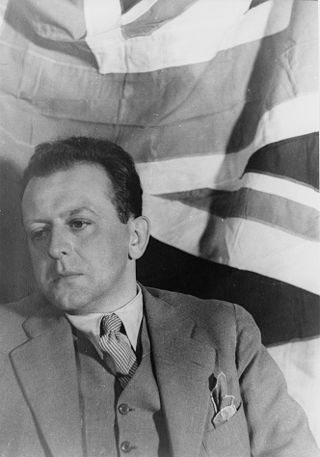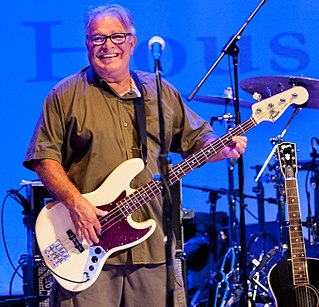Related Research Articles

Chicano rock, also called chicano fusion, is rock music performed by Mexican American (Chicano) groups or music with themes derived from Chicano culture. Chicano Rock, to a great extent, does not refer to any single style or approach. Some of these groups do not sing in Spanish at all, or use many specific Latin instruments or sounds. The subgenre is defined by the ethnicity of its performers, and as a result covers a wide range of approaches.

Úrsula Hilaria Celia de la Caridad Cruz Alfonso, known as Celia Cruz, was a Cuban singer and one of the most popular Latin artists of the 20th century. Cruz rose to fame in Cuba during the 1950s as a singer of guarachas, earning the nickname "La Guarachera de Cuba". In the following decades, she became known internationally as the "Queen of Salsa" due to her contributions to Latin music. She had sold over 10 million copies, making her one of the best-selling Latin music artists.

Colin Carhart McPhee was a Canadian-American composer and ethnomusicologist. He is best known for being the first Western composer to make a musicological study of Bali, and to develop American gamelan along with fellow composer Lou Harrison. He wrote original music influenced by that of Bali and Java, decades before such compositions that were based on world music became widespread.
Bruno Nettl was an ethnomusicologist who was central in defining ethnomusicology as a discipline. His research focused on folk and traditional music, specifically Native American music, the music of Iran and numerous topics surrounding ethnomusicology as a discipline.

Charles Louis Seeger Jr. was an American musicologist, composer, teacher, and folklorist. He was the father of the American folk singers Pete Seeger (1919–2014), Peggy Seeger, and Mike Seeger (1933–2009); and brother of the World War I poet Alan Seeger (1888–1916) and children's author and educator Elizabeth Seeger (1889-1973).
Domingo Quiñones is a singer of salsa music. He is also a composer, producer and actor.

Conrad R. Lozano is an American musician and the bass player for Los Lobos.
"Oye Cómo Va" is a 1962 cha-cha-chá song by Tito Puente, originally released on El Rey Bravo. The song achieved worldwide popularity when it was covered by American rock group Santana for their album Abraxas. This version was released as a single in 1971, reaching number 13 on the Billboard Hot 100, number 11 on the Billboard Easy Listening survey, and number 32 on the R&B chart. The block chord ostinato pattern that repeats throughout the song was most likely borrowed by Puente from Cachao's 1957 mambo "Chanchullo", which was recorded by Puente in 1959.
Cynthia Tse Kimberlin is an American ethnomusicologist. She is the executive director and publisher of the Music Research Institute and MRI Press, based in Point Richmond, California. Her primary area of expertise is the music of Africa, in particular Ethiopia and Eritrea.

Andy Russell was an American popular vocalist, actor, and entertainer of Mexican descent, specializing in traditional pop and Latin music. He sold 8 million records in the 1940s singing in a romantic, baritone voice and in his trademark bilingual English and Spanish style. He had chart-busters, such as "Bésame Mucho", "Amor", and "What a Diff'rence a Day Made". He made personal appearances and performed on radio programs, most notably Your Hit Parade, in several movies, and on television. During this initial phase of his career, his popularity in the United States rivaled that of crooners Frank Sinatra and Perry Como.

Gerard Henri Luc Béhague was an eminent Franco-American ethnomusicologist and professor of Latin American music. His specialty was the music of Brazil and the Andean countries and the influence of West Africa on the music of the Caribbean and South America, especially candomblé music. His lifelong work earned him recognition as the leading scholar of Latin American ethnomusicology.

Ernest AnthonyPuente Jr., commonly known as TitoPuente, was an American musician, songwriter, bandleader, timbalero, and record producer. He composed dance-oriented mambo and Latin jazz music.
Fredric Lieberman was an American ethnomusicologist, composer, music professor, and author. As a faculty member at the University of California at Santa Cruz, he was affiliated with the Music Department. UCSC is where he became known for teaching and studying the Grateful Dead.
The Norman Thomas High School for Business and Commercial Education was a public high school in the Murray Hill neighborhood of Manhattan, New York City under the New York City Department of Education. Formerly known as Central Commercial High School (CCHS), and before that, the Central School of Business and Arts, its former location was on 42nd Street in a structure constructed with a 20-story office building in the air rights above it. It was renamed after Presbyterian minister and Socialist activist Norman Thomas and moved to occupy the first nine floors of 3 Park Avenue, a 42-story skyscraper on East 33rd Street at Park Avenue in 1975.

Rolando Antonio Pérez Fernández is a Cuban musicologist, cellist and professor.
"Morning" is a Latin Jazz standard written by American pianist/composer/arranger Clare Fischer, first heard on his 1965 LP, Manteca!, Fischer's first recording conceived entirely in the Afro-Cuban idiom, which, along with the Brazilian music he had explored at length over the previous three years, would provide fertile ground for Fischer's musical explorations over the next half-century.

Justo Pastor Almario Gómez is a Colombian-born, Los Angeles–based flutist, saxophonist and Latin jazz group leader. He was among several Colombian musicians recruited by Mongo Santamaria for his band in the 1970s, notably on the album, Afro–Indio (1975).
The Chicano Music Awards was an annual award event that honored Chicano musicians and raised money for college scholarships. It was held at the Pasadena Civic Auditorium. It was attended by as many as 3,000 people.

Latin music is a term used by the music industry as a catch-all category for various styles of music from Ibero-America, which encompasses Latin America, Spain, Portugal, and the Latino population in Canada and the United States, as well as music that is sung in either Spanish and/or Portuguese. It may also include music from other territories where Spanish- and Portuguese-language music is made.

The UCLA Herb Alpert School of Music, located on the campus of the University of California, Los Angeles, is “the first school of music to be established in the University of California system.” Established in 2007 under the purview of the UCLA School of Arts and Architecture and the UCLA Division of Humanities, the UC Board of Regents formally voted in January 2016 to establish the school. It is supported in part by a $30 million endowment from the Herb Alpert Foundation.
References
- 1 2 Steven Loza profile at UCLA Archived 2003-03-01 at archive.today
- 1 2 "Ethnomusicologist to lead Arts of Americas", UNM Campus News, April 28, 2003